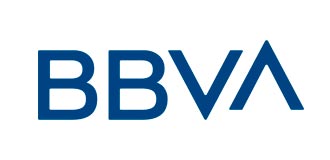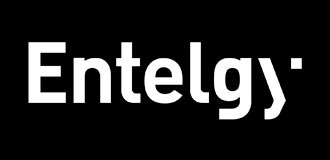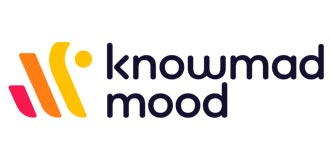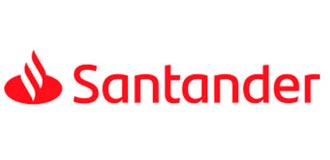Master’s Degree in Continuing Education in Agile Frameworks: Culture, Scaling, Deliverables and Transformations
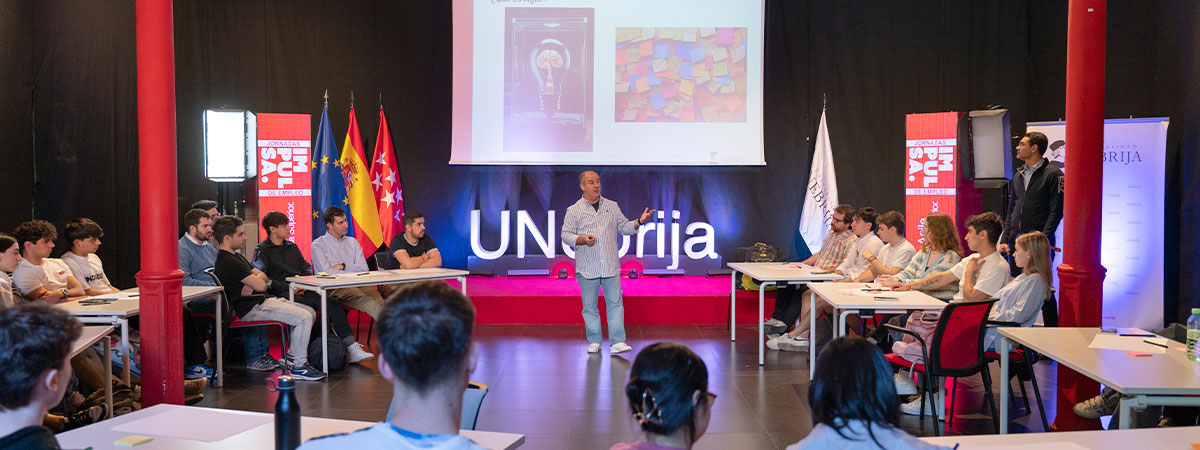
Expert Training in Digital Transformation Processes Led by Agile-Culture Professionals
The Master's Degree in Agile Frameworks equips you to spearhead transformative shifts in work methodologies, extending from individual teams to entire organizations. With an open and adaptable approach, students acquire practical knowledge in each subject area and implement this expertise in their Master's Final Project.
Benefit from the wisdom of seasoned professionals who share their successes, failures, and challenges, enriching theoretical understanding with real-world experiences. Learn to effectively navigate the complexities of agile transformations, addressing difficulties with confidence and efficacy.
The program consists of an itinerary comprising four modules:
- 1. Agile Fundamentals
- 2. Personal Development
- 3. Product Development Technique
- 4. Dealing with Complexity.
These modules are sequenced to progressively deepen and broaden the content. Each module incorporates training actions organized into the following knowledge areas:
Read +- Agile Practice
- Agile Mentality
- Product and Business
- Tools
- Agile Technique
- Facilitation and Change Management.
Moreover, the program offers the opportunity to obtain the following certifications:
- Expert Scrum Foundations, awarded by European Scrum.
- Expert Scrum Master, certified by European Scrum.
- Expert Product Owner, endorsed by European Scrum.
- SAFe 6 Agilist, accredited by Scaled Agile.
- SAFe 6 DevOps Practitioner, granted by Scaled Agile.
Why study the Máster en Agile Frameworks: Cultura, Escalado, Productos y Transformaciones

Professional Certifications
The program allows students to obtain the following certifications: Expert Scrum Foundations, Expert Scrum Master and Expert Product Owner (issued by European Scrum); and SAFe 6 Agilist and SAFe 6 DevOps Practitioner (issued by Scaled Agile).

Comprehensive Program
This integral program encompasses essential skills needed to lead transformations through an Agile lens. Beginning with individual teams tasked with product development, it progresses to scaling operations across multiple teams, ultimately culminating in organizational transformation. Participants will immerse themselves in cutting-edge practices vital for achieving success, complemented by a coaching program designed to equip them with leadership capabilities.

Experiential Approach
Courses will be delivered experientially, prioritizing practical application over theoretical discourse. Through hands-on learning experiences, students will acquire the knowledge required to fulfill the role of Agile Coach and develop the competencies necessary for effective leadership.
Curriculum
All our degrees and curricula adhere to the latest guidelines established by current legislation and have undergone verification by the National Quality Assessment Agency.
Each student is required to complete 60 credits.
First Semester 27 ECTS
- 1,5 ECTS | Introduction to Agile Methodologies
- 2 ECTS | Lean (Fundamentals, Startups)
- 2 ECTS | Design Thinking Workshop
- 4 ECTS | Scrum Methodology (Foundations, Scrum Master, Product Owner)
- 5 ECTS | Kanban Method (Foundations, Design, Implementation)
- 4 ECTS | Tools (Jira + Visualization)
- 4 ECTS | Product Interface Development (UX/UI + Penpot)
- 1 ECTS | Liberating Structures
- 2 ECTS | Business Agility
- 1,5 ECTS | Agile Metrics
Second Semester 10 ECTS
- 2 ECTS | Personal Development (LPC + Tools + Enneagram)
- 1 ECTS | | Scrum Practice (Development Team)
- 2,5 ECTS | Development Techniques (XP + Agile Testing)
- 1 ECTS | Team Culture
- 1,5 ECTS | Business Analysis with an Agile Approach
- 1 ECTS | Complexity Frameworks
- 1 ECTS | Scale Frameworks (Foundations)
Third Semester 17 ECTS
- 3 ECTS | System Coaching
- 2 ECTS | Management 3.0
- 1,5 ECTS | Agile Hiring Practices
- 4 ECTS | Scale Frameworks (Leading SAFe + SAFe DevOps)
- 3 ECTS | Change Management Models
- 1 ECTS | OKR
- 1 ECTS | Tools (Scale Tools)
- 0,5 ECTS | Advanced Agile Metrics
- 1 ECTS | Ethics in Agile Coaching
Master’s Final Project 6 ECTS
- 6 ECTS | Master’s Final Project
Professors
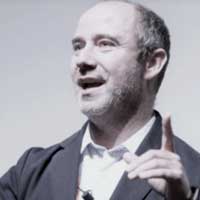 Félix Bragado Yturriaga
Director del Máster
Félix Bragado Yturriaga
Director del MásterAgile Comunity Tech Lead at knowmad mood Director of the Master
Agile Community Tech Lead at knowmad mood Ingeniero informático por la UPSAM (Universidad Pontificia de Salamanca en Madrid), Scrum Master, Product Owner, Agile Coach, Agile HR y Trainer por European Scrum. SCP (SAFe Practice Consultant) por SAFe, TKP, KSI y KSD por Kanban University y HCMP (Human Change Management Professional) por HUCMI. Desarrolló su actividad en Entelgy como desarrollador web, responsable del área de software testing, consultor de formación, consultor tecnológico y gestor del cambio durante 14 años.
Actualmente desarrolla su actividad como Agile Coach y Líder Técnico de la Comunidad Agile de knowmad mood (antigua atSistemas) ayudando a diferentes compañías a transformar su forma de trabajar. Colabora tanto con equipos individuales, como escalando el uso de prácticas Agile a toda la organización. Colabora con empresas de sectores como seguros, banca, retail, telco, media, energía y administración pública. Durante toda su trayectoria ha actuado como formador, tanto en tecnología como en diferentes formas de trabajo, en entorno público, privado y académico.
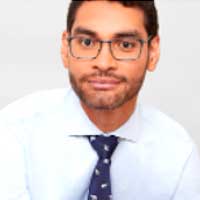 William Guevara Chirinos
Culture and Talent Value Stream Lead at knowmad mood
Culture and Talent Value Stream Lead at knowmad mood
Ingeniero de Sistemas por la UNEFA (Universidad Nacional Experimental de las Fuerzas Armadas en Venezuela), Master in Business Administration - MBA por la INESEM Business School y Executive Certificate in Strategy and Innovation por MIT Sloan Executive Education, Professional Certified Coach (PCC) por ICF, Expert in Enterprise Coaching ICE-EC por ICAgile, Collective Leadership Assessment Certification (CLA) y Leadership Circle Profile Certification (LCP) por The Leadership Circle, SCP (SAFe Practice Consultant) por SAFe, Kanban Coaching Profesional - KCP por Kanban University, Program Management Professional (PgMP), PMI Agile Certified Practitioner (PMI-ACP), Project Management Professional (PMP) por el Project Management Institute. Desarrollo su actividad profesional en el sector de la Consultoría en Estrategia y Operaciones en empresas como Arthur Andersen posteriormente Accenture, Deloitte y Partners estratégicos de Cognos ahora IBM Cognos.
William Guevara Chirinos
Culture and Talent Value Stream Lead at knowmad mood
Culture and Talent Value Stream Lead at knowmad mood
Ingeniero de Sistemas por la UNEFA (Universidad Nacional Experimental de las Fuerzas Armadas en Venezuela), Master in Business Administration - MBA por la INESEM Business School y Executive Certificate in Strategy and Innovation por MIT Sloan Executive Education, Professional Certified Coach (PCC) por ICF, Expert in Enterprise Coaching ICE-EC por ICAgile, Collective Leadership Assessment Certification (CLA) y Leadership Circle Profile Certification (LCP) por The Leadership Circle, SCP (SAFe Practice Consultant) por SAFe, Kanban Coaching Profesional - KCP por Kanban University, Program Management Professional (PgMP), PMI Agile Certified Practitioner (PMI-ACP), Project Management Professional (PMP) por el Project Management Institute. Desarrollo su actividad profesional en el sector de la Consultoría en Estrategia y Operaciones en empresas como Arthur Andersen posteriormente Accenture, Deloitte y Partners estratégicos de Cognos ahora IBM Cognos.
Actualmente desarrolla su actividad como Culture & Talent Value Stream Leader y Enterprise Change Catalyst en knowmad mood (antigua atSistemas) catalizando el desarrollo de negocio de la compañía alrededor del agilismo, los cambios culturales, las transformaciones agile y el puesto de trabajo digital.
 Esther Hernández Gala
Agile Coach and Digital Consultant at knowmad mood
Agile Coach and Digital Consultant at knowmad mood
Trabaja dentro del Centro Experto Agile de knowmad mood (antes atSistemas) como Enterprise Agile Coach, impulsando la adaptación y el escalado de la agilidad de equipos, generalmente de IT, en alineación con la visión, metas y necesidades de proyectos de sus clientes.
Esther Hernández Gala
Agile Coach and Digital Consultant at knowmad mood
Agile Coach and Digital Consultant at knowmad mood
Trabaja dentro del Centro Experto Agile de knowmad mood (antes atSistemas) como Enterprise Agile Coach, impulsando la adaptación y el escalado de la agilidad de equipos, generalmente de IT, en alineación con la visión, metas y necesidades de proyectos de sus clientes.
Tiene más de 15 años de experiencia en Consultoría ayudando a los clientes en su proceso de transformación digital, cada día enriquece su formación y certificaciones (Tesina: Aspectos Legales del Big Data, SAFe SPC, PMI-ACP, Kanban University, ICAgile y The Leadership Circle Program) con experiencia en la facilitación de cambios en equipos ágiles en organizaciones de múltiples sectores como salud, banca o energía.
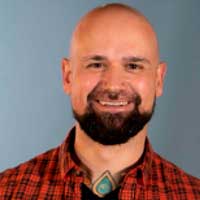 Alberto Serrano
Especialista en efectividad organizacional y liderazgo humanista
Specialist in organizational effectiveness and humanistic leadership
Alberto, mente de ingeniero informático con corazón latiendo por y para las personas, lleva más de 15 años acompañando a organizaciones e individuos en sus procesos de transformación con el propósito de generar entornos más rentables y plenos. Actualmente pertenece al círculo Agile de Paradigma Digital, donde sus principales focos de actuación se centran en negocio, marketing y comunicación, impactando en las organizaciones por medio de las personas, la tecnología, los procesos y el liderazgo.
Alberto Serrano
Especialista en efectividad organizacional y liderazgo humanista
Specialist in organizational effectiveness and humanistic leadership
Alberto, mente de ingeniero informático con corazón latiendo por y para las personas, lleva más de 15 años acompañando a organizaciones e individuos en sus procesos de transformación con el propósito de generar entornos más rentables y plenos. Actualmente pertenece al círculo Agile de Paradigma Digital, donde sus principales focos de actuación se centran en negocio, marketing y comunicación, impactando en las organizaciones por medio de las personas, la tecnología, los procesos y el liderazgo.
Sus comienzos se centran en los principales verticales del Grupo PRISA, colaborando posteriormente con organizaciones de diversos tamaños e industrias como Stratio Big Data, BBVA, Banco Santander, Orange, Indra, Filmin, Aristocrazy, Eroski y Mapfre, entre otras muchas, apoyando procesos de transformación Agile, Lean, Cultural y Tecnológico.
Hoy en día es Accredited Kanban Trainer en Kanban University y Licensed Management 3.0 Facilitator en Management 3.0, además de haber sido Professional Scrum Trainer en Scrum.org.
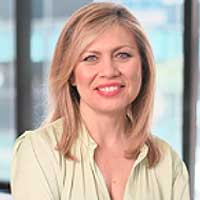 Merche Aranda
CEO de Ideare Aprendizaje e Innovación
Merche Aranda
CEO de Ideare Aprendizaje e InnovaciónDirectora del Coaching Grow Systemic Program (Nivel 2 by ICF) CEO of Ideare Learning and Innovation
Director of the Coaching Grow Systemic Program (Level 2 by ICF) Hasta el 2005 desarrollé mi carrera profesional en la Dirección de RH en empresas del sector de la formación y la Gestión de Equipos Multidisciplinares en diversas consejerías de la CAM.
Soy PhD. Cum Laude en Psicología Social y de las Organizaciones por la Facultad de Psicología y acreditada por la ANECA. Emprendedora por naturaleza y, desde el 2005, soy directora de Ideare Aprendizaje e Innovación y de Ideare Escuela de Coaching, un Laboratorio Generador de Conocimiento, Aprendizaje e Innovación en la Capacitación y la Transformación Organizativa, Profesional y Personal. Un lugar desde donde acompaño a clientes individuales y a organizaciones.
Me apasiona co-crear espacios de crecimiento, desarrollo, transmitir y compartir conocimiento, algunas referencias de clientes con lo que he colaborado son Airbus, Sony España. Zara Home, Banco de España, Banco Santander, Andreas Sthill, Grupo Auchan España, Carrefour, Grupo Planeta, YARA, entre otros.
Además, es un espacio donde doy rienda suelta a mi creatividad y habilidades multidisciplinares desarrollando capacitaciones de alto impacto como el Modelo de Intuición Sistémica©; el Máster de Liderazgo Agile 360º©, El Executive Máster en Liderazgo y Coaching en EAE-BS y el Programa de Competencias Básicas de coaching PCBC©., aprobado este último como ACTP por ICF, y formaciones en habilidades de nicho, entre otros.
Soy directora del Máster de Liderazgo y Coaching de EAE-BS Campus Madrid y Barcelona y del Master Liderazgo Agile 360ª en la UDIMA. También docente en la Universidad Rey Juan Carlos, en la Universidad Nacional de Educación a Distancia y en los programas EMBA y Desing Customer Experience en EAE-BS.
Promover el ejercicio de la profesión del Coaching con calidad y excelencia es otro de mis motores y de mi actividad. Soy Master Certifícate Coach (MCC) por ICF con más de 6.500 horas con clientes y más 17 años de experiencia en el ámbito de la Transformación cultural, Liderazgo y coaching ejecutivo y de Equipos, Mentor-Coach de ICF Global con más de 5.000 horas de acompañamiento a coaches y como Asesor-Evaluadora para ICF.
Mis máximas vitales son “Estar en continuo desarrollo del conocimiento y aprendizaje multidisciplinar” y “Vivir en equilibrio ecológico plantando semillas generadoras de cambios.
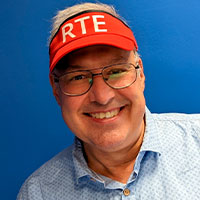 Alexander Menzinsky Vollmuht
Ingeniero SAFe SPC6 & RTE, IA&Agile Coach, Trainer & Knowmad
SAFe SPC6 & RTE Engineer, IA&Agile Coach, Trainer & Knowmad
informático por ESI (Escuela Sistemas Informáticos), Scrum Master (Scrum Alliance y Scrum.org), Agile Coach, RTE (SAFe Release Train Engineer), SPC (SAFe Practice Consultant), Product Owner, KMP (Kanban Management Profesional) de la Kanban University, CLP (Certified LeSS Practitioner), Trainer por ScrumManager y coach sistémico ORSC (Organizational Relationship Systems Coaching). Desarrolló su actividad como experto en SAFe (Agile Coach y Trainer) durante 7 años en Estratecno, desde 2014 .
Alexander Menzinsky Vollmuht
Ingeniero SAFe SPC6 & RTE, IA&Agile Coach, Trainer & Knowmad
SAFe SPC6 & RTE Engineer, IA&Agile Coach, Trainer & Knowmad
informático por ESI (Escuela Sistemas Informáticos), Scrum Master (Scrum Alliance y Scrum.org), Agile Coach, RTE (SAFe Release Train Engineer), SPC (SAFe Practice Consultant), Product Owner, KMP (Kanban Management Profesional) de la Kanban University, CLP (Certified LeSS Practitioner), Trainer por ScrumManager y coach sistémico ORSC (Organizational Relationship Systems Coaching). Desarrolló su actividad como experto en SAFe (Agile Coach y Trainer) durante 7 años en Estratecno, desde 2014 .
Actualmente desarrolla su actividad como Agile Coach experto en SAFe en Tecnofor, habiendo realizado actividades transversales de transformación para organizaciones de banca, seguros, energía, telco y retail. Ha liderado más de una docena de implementaciones de SAFe exitosas y organizado más de una treintena de PI Plannings, tanto en modo presencial como en remoto, en castellano y en inglés. Actualmente su trayectoria le ha situado como uno de los mayores expertos en SAFe en España.
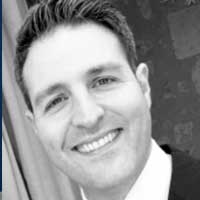 Luis Vidaechea
Global Head of Transformation
Luis Vidaechea
Global Head of Transformation FX Santander Corporate & Investment Banking Global Head of Transformation
FX Santander Corporate & Investment Banking Ingeniero técnico en informática, empezó su carrera como programador hace más de 15 años y actualmente lidera la transformación Agile en SCIB FX en el Banco Santander, a su vez es Technical Coach y líder de la comunidad de prácticas de DevOps de Mercados dentro del Banco Santander. En su trayectoria ha pasado por distintas industrias: banca, seguros, telecomunicaciones y aeroespacial, ocupando puestos de dirección tecnológica, transformación digital y liderazgo de equipos.
Scrum Trainer, conferenciante, formador e investigador de la agilidad, siempre focalizado en ayudar a equipos a lograr su máximo potencial, profesor de artes marciales y practicante de deportes de contacto, es un gran aficionado al cine, los cómics y los videojuegos.
 Víctor González García
Agile Coach at Kwnomad Mood
Víctor González García
Agile Coach at Kwnomad MoodCecabank Business Agile Office (BAO) Agile Coach at Kwnomad Mood
Cecabank Business Agile Office (BAO) Ingeniero Técnico en Informática por la Universidad de Sevilla e Ingeniero Superior en Informática por la Universidad Autónoma de Madrid. Ejerció como desarrollador y analista informático en el sector bancario durante 7 años desde 2011, pero ya desde 2014 compatibilizó las labores propias del desarrollo de Software con la introducción en el mundo de Agile y su aplicación dentro del departamento al que pertenecía. En esta etapa, además de los frameworks de Scrum y Kanban, trabajó con eXtreme Programming y DevOps, por inercia del mundo tecnológico del que venía.
En 2018 dio por primera vez el salto a una nueva empresa del sector de Telecomunicaciones y un nuevo trabajo, totalmente orientado a la faceta Agile. Durante 3 años ejerció primero como Scrum Master de un par de equipos y luego como Agile Coach de una tribu y formando parte de la Oficina de Agile de un área con más de 20 equipos y 250 personas.
Tras esto, volvió a mover su carrera hacia la consultoría, trabajando como Agile Coach en dos clientes hasta el momento, uno del sector de Retail y volviendo al sector bancario con el segundo. En este último cliente trabaja con el framework de Kaban en un departamento de desarrollo de software de 150 personas y unos 15 equipos y entrando en otro de infraestructura tecnológica con una envergadura aún mayor, ayudando desde la Oficina de Agile a transmitir las prácticas y valores del Agilismo, sin alejarse del día a día de los equipos y profundizando en la obtención de métricas
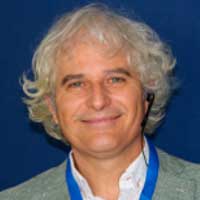 Rafa Pagán
Director de portfolio, programas y proyectos, analista de negocio, experto en MS Project, agilista, trainer y mentor de startups
Project director, business analyst, MS Project expert, agilist, trainer and startup mentor
Director de Proyectos Multicertificado, docente, headhunter y Mentor en Dirección de Proyectos y Análisis de Negocio. También es director de Proyectos TIC, de Innovación y de Transformación Organizacional y Startups Advisor. Trabaja para las principales empresas multinacionales y españolas de todos los sectores de actividad.
Rafa Pagán
Director de portfolio, programas y proyectos, analista de negocio, experto en MS Project, agilista, trainer y mentor de startups
Project director, business analyst, MS Project expert, agilist, trainer and startup mentor
Director de Proyectos Multicertificado, docente, headhunter y Mentor en Dirección de Proyectos y Análisis de Negocio. También es director de Proyectos TIC, de Innovación y de Transformación Organizacional y Startups Advisor. Trabaja para las principales empresas multinacionales y españolas de todos los sectores de actividad.
Es el único español que combina las certificaciones del Project Management Institute, con las del International Institute of Business Analysis, además de las certificaciones más importantes de Agilismo y MS Project. La integración de ambos roles (director de Proyectos y Analista de Negocio) en consultoría y en docencia, tanto en entornos tradicionales como ágiles, le permite asegurar que el resultado de los proyectos y las soluciones aportadas a las empresas y alumnado estén alineadas con la estrategia empresarial, convirtiendo a la Organización en una estructura más eficiente
En su faceta de voluntariado es Líder de PMI Madrid en el Grupo de Interés en Análisis de Negocio y Dirección de Proyectos, voluntario en el Área de Webinars y articulista en el Boletín Mensual.
Ha sido galardonado con el Premio Voluntario del Año 2021. También ha sido nombrado recientemente presidente de IIBA Spain Chapter, el Capítulo de España de IIBA (International Institute of Business Analysis).
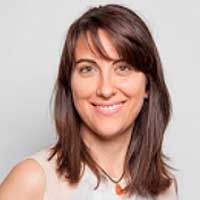 María Asunción Gutiérrez Pescador
Agile Coach en Knowmad Mood
María Asunción Gutiérrez Pescador
Agile Coach en Knowmad Mood Test Manager por ISTQB (CTALTM)
CAT Extension por iSQI (CTFL-AT) Agile Coach en Knowmad Mood
Test Manager por ISTQB (CTALTM)
CAT Extension por iSQI (CTFL-AT) Licenciada en Ciencias Físicas por la Universidad de Valladolid, Scrum Master, Agile Coach por European Scrum. SAFe 5 Devops Practicioner, SAFe 5 Agilist por Scaled Agile, Inc, KSI y KSD por Kanban University, Agile Tester, ISTQB Advanced Level as Test Manager por la iSQI. Mi motivación es la curiosidad por todo lo que me rodea.
Mi actividad profesional empezó desde el ámbito de las pruebas de software en puestos junior hasta ser el responsable de los equipos de pruebas en distintas empresas desde la consultoría (MTP, Avanzit Tecnología) al desarrollo de productos en distintos sectores como Liferay, Sicpa o HMY.
Actualmente trabajo como Agile Coach y miembro del centro experto de la Comunidad Agile de knowmad mood (antigua atSistemas) ayudando a que cada compañía encuentre el modo de trabajo y la cultura en la que son capaces de rendir al máximo, de forma sostenible en el tiempo. Mis tareas abarcan el uso de técnicas ágiles, el coaching en la resolución de conflictos y la facilitación de sesiones tanto en equipos individuales como en grupos de personas con distintas jerarquías y/o áreas interdisciplinares. También dedico una parte de mi tiempo a formar a personas dentro de la compañía en distintos roles como PO o Scrum Master.
El abanico de sectores en los que he trabajado es muy variado, yendo desde la administración pública, la telefonía, el comercio electrónico, la salud y la trazabilidad/seguridad de productos.
 Covadonga Saras
Transformación Lean&Agile en Iberdrola
Lean&Agile Transformation at Iberdrola
Covadonga Saras
Transformación Lean&Agile en Iberdrola
Lean&Agile Transformation at Iberdrola
 Crisanto Fernández Moreno
Operations Manager
Crisanto Fernández Moreno
Operations Manager DEXS (Digital Experience School) and Solutions Architectures at knowmad mood Operations Manager
DEXS (Digital Experience School) and Solutions Architectures at knowmad mood Ingeniero Técnico Informático por la UCLM (Universidad de Castilla-La Mancha), Scrum Master Certified por European Scrum. Master MBA por Cerem y Dirección de RRHH por ENEB, escuela en la que obtiene las especializaciones de Empowerment Corporativo, Coaching y PNL. Responsable de equipos tecnológicos y formador desde el inicio de su carrera.
Desarrolla su actividad como Operations Manager y Líder de la Comunidad de Arquitectura de Soluciones de knowmad mood (antigua atSistemas). Impulsando y gestionando iniciativas internas que apoyen el desarrollo de negocio de la compañía y actuando como punto de unión ente los equipos técnicos, comerciales y organizativos. Su trayectoria se ha centrado en el trabajo con las personas, destacando sus inicios como parte del equipo de instructores de Sun Microsystems, donde se especializa en Tecnología Java. Actualmente lidera un Centro Experto de alto rendimiento, cuyos miembros son los principales garantes de la excelencia tecnológica de la empresa.
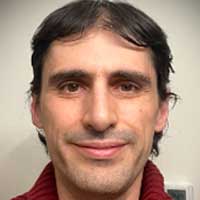 Sergio del Mazo Gonzalez
Agile coach en procesos de transformación para Paradigma Digital
Agile coach in transformation processes for Digital Paradigma
Ingeniero técnico en informática de gestión por la UBU (universidad de Burgos), PSM I, PSPO I por Scrum.org, SAFe agilist, Lean Change Agent by Lean Change Management, TKP, KSD, KMP por Lean Kanban University, management 3.0, green belt por Global Lean y Universidad Politécnica de Madrid, Lean practitioner por Instituto Lean Management
Sergio del Mazo Gonzalez
Agile coach en procesos de transformación para Paradigma Digital
Agile coach in transformation processes for Digital Paradigma
Ingeniero técnico en informática de gestión por la UBU (universidad de Burgos), PSM I, PSPO I por Scrum.org, SAFe agilist, Lean Change Agent by Lean Change Management, TKP, KSD, KMP por Lean Kanban University, management 3.0, green belt por Global Lean y Universidad Politécnica de Madrid, Lean practitioner por Instituto Lean Management
Empezó su carrera laboral como helpdesk en Decathlon España, donde fue aprendiendo y llegó a ser experto internacional en el dominio del “cobro”. A partir de ahí comenzó su andadura como Scrum Master al 100%, pasando por sitios tan interesantes y diversos como Unidad Editorial, Stratio big data, Minsait, Informática Ayuntamiento de Madrid, Grupo Tendam o Banco Santander entre otros.
En sus últimas experiencias ha ejecutado roles como el de Agile Coach o Scrum Master, siendo en ambos casos responsable de cambiar la forma de trabajo hacia modelos adaptativos, siempre con algún objetivo en el horizonte: cambiar la mentalidad de proyecto a producto, enfrentarse al reto de escalar un equipo definiendo un marco de trabajo, rentabilidad a corto plazo para poder sobrevivir o “simplemente” hacer más eficiente una operativa.
Todo esto lo hace desde Paradigma Digital, llevando su sistema Polaris a todos los clientes con conceptos tan potentes como “la agilidad no es un fin, sino un medio”.
Acostumbrado a dar clases desde bachillerato, dar formación es algo natural para él. Muchos dicen que tiene madera de streamer cuando asisten a sus sesiones, webinars o ven alguno de los videotutoriales que preparara.
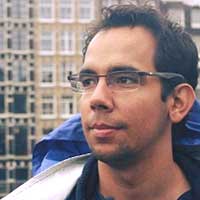 Francisco Burgos Valdés
Atlassian Solution Consultant Expert & Department's Service Manager at knowmad mood
Atlassian Solution Consultant Expert & Department's Service Manager at knowmad mood
Ingeniero de Software por la UPM (Universidad Politécnica de Madrid), Sistemas Distribuidos y Empotrados (UPM), Scrum Master por el International Scrum Institute (ISI) y con MBA por ThePower Business School.
Francisco Burgos Valdés
Atlassian Solution Consultant Expert & Department's Service Manager at knowmad mood
Atlassian Solution Consultant Expert & Department's Service Manager at knowmad mood
Ingeniero de Software por la UPM (Universidad Politécnica de Madrid), Sistemas Distribuidos y Empotrados (UPM), Scrum Master por el International Scrum Institute (ISI) y con MBA por ThePower Business School.
Trabajó en IBM y partners asociados como especialista en la implantación de procesos de Gestión de la Configuración (CM) y Ciclo de Vida de las Aplicaciones (ALM).
Actualmente es Consultor de Soluciones ITSM / ALM / DevOps y Coordinador de la Comunidad Atlasssian en Knowmad Mood (atSistemas). Se encarga de gestionar la demanda sobre los servicios de la comunidad y ayuda a las organizaciones, públicas y privadas, a analizar, diseñar e implantar nuevas soluciones basadas en patrones Agile, Tradicionales o Mixtos para diferentes ámbitos como la gestión de servicios IT (ITSM), de Negocio (ESM), Gestión de proyectos (PMO), Gestión de activos (AM) y ciclo de vida de las aplicaciones (ALM/DevOps). También trabaja de forma habitual como formador capacitando a los diferentes roles de las organizaciones en los modelos y operativa de las soluciones implantadas.
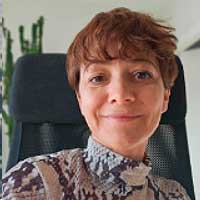 Paula Martínez Roa
Responsable del área Ux transversal de nuevas soluciones sectoriales en Telefónica B2B
Responsible for the transversal Ux area of new sector solutions at Telefónica B2B
Licenciada en comunicación audiovisual por la Universidad Europea de Madrid, Master en Informática pluridisciplinar por la Universidad de Alcalá y Master en diseño Digital por Trazos, Escuela de Arte Digital.
Paula Martínez Roa
Responsable del área Ux transversal de nuevas soluciones sectoriales en Telefónica B2B
Responsible for the transversal Ux area of new sector solutions at Telefónica B2B
Licenciada en comunicación audiovisual por la Universidad Europea de Madrid, Master en Informática pluridisciplinar por la Universidad de Alcalá y Master en diseño Digital por Trazos, Escuela de Arte Digital.
Es una diseñadora estratégica con más de 15 años de experiencia en empresas internacionales dando soporte a productos y servicios de varios continentes. Su experiencia abarca sectores como el ocio en streaming: Movistar TV LATAM y Mediaroom Microsoft; el financiero: diseñó la primera experiencia de contratación bancaria móvil de España junto ING, y fue responsable de UX en el lanzamiento de la aplicación de cashback Twyp Cash. También lideró el Plan de formación en Customer Experience en el Grupo ING para 4 países europeos y fue innovation coach para proyectos estratégicos de la compañía.
Actualmente es responsable de diseño de servicios en Telefónica Nuevos Negocios Verticales desde donde desarrollan joint ventures para sectores como la energía limpia con el servicio Solar360 de Telefónica y Repsol, protección del hogar con Movistar Prosegur Alarmas o el sector senior con Movistar Te Cuida. Es además Master de la Comunidad Global de Behavioral Economics en el grupo Telefónica. Y compagina su trabajo de diseñadora impartiendo clases de innovación y diseño de servicios en la Universidad de Diseño y Tecnología UDIT.
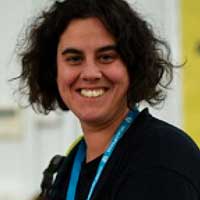 Ana Cirujano Garzo
Diseñadora UX/UI freelance de negocio digital
Freelance UX/UI designer for digital business
Licenciada en Sociología por la UCM, su formación incluye además Antropología, Ventas, Marketing, Diseño de interfaces y Experiencia de usuario, y Desarrollo web.
Ana Cirujano Garzo
Diseñadora UX/UI freelance de negocio digital
Freelance UX/UI designer for digital business
Licenciada en Sociología por la UCM, su formación incluye además Antropología, Ventas, Marketing, Diseño de interfaces y Experiencia de usuario, y Desarrollo web.
Durante los primeros 10 años de su carrera se especializó en diseño editorial, y en conectar el mundo de la universidad y de la empresa a través del employer branding. Desde 2016 es diseñadora de negocio digital de manera freelance y gestiona proyectos de clientes que quieren crecer en internet con sus negocios digitales, potenciando su valor a través del diseño basado en datos. Es una figura activa en la Comunidad WordPress, contribuye al diseño de este software Open Source y ha impartido más de 40 ponencias diferentes en WordCamps de todo el mundo.
Actualmente, además, es embajadora de marca del proveedor de hosting Piensa Solutions, co-conductora del pódcast y canal de YouTube Un billete a Chattanooga, fundadora y profesora de diseño en la academia online 3ymedia School y aficionada al pádel y al workation. Síguela en redes para descubrir más sobre sus experiencias en diseño UX/UI.
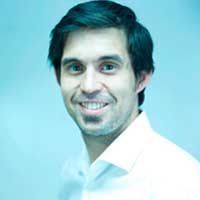 Aday Guerra Escohotado
Estrategia Digital en Paradigma Digital
Aday Guerra Escohotado
Estrategia Digital en Paradigma DigitalConsultor Senior de Innovación y Agile Digital Strategy in Digital Paradigm
Senior Innovation and Agile Consultant Soy Ingeniero Informático con estudios en Ingeniería en Telecomunicaciones y del Máster en Investigación en Inteligencia Artificial por la UPM.
He estado involucrado con startups y el intraemprendimiento durante mucho tiempo, habiendo fundado tres startups desde mis días de estudiante. En 2008, trabajé en una startup relacionada con el Marketing Digital y la Visión Artificial, donde creamos dispositivos para el estudio de audiencias. Fue en este contexto donde tuve mi primer contacto con las metodologías ágiles para el desarrollo de productos.
En 2011, fundé mi propia empresa centrada en la creación de productos Cloud para la Administración Pública, con un enfoque en las Smart Cities. En mi rol como CTO, estuve a cargo de los equipos de gestión de productos y de desarrollo. Fue en este momento cuando comencé a aplicar de manera más profunda los marcos ágiles tanto en la gestión de equipos de desarrollo como en la gestión en general.
También adopté la metodología Lean Startup para la creación de productos que realmente abordaron los problemas identificados por nuestros clientes.
Desde 2013, he colaborado en varios programas para ayudar a startups y empresas a adoptar y poner en práctica frameworks agile y la metodología Lean Startup.
Desde 2016, he ayudado a clientes a conceptualizar productos digitales desde una perspectiva estratégica utilizando métodos lean y centrándonos en la validación de sus modelos de negocio.
Soy profesor en varios programas de Máster, donde imparto asignaturas relacionadas con la innovación, Design Thinking, Lean Startup desde el 2013.
En grados llevo dando clase de diferentes asignaturas de programación y gestión de proyectos desde el 2008 en el Grado de Ingeniería Informática de la Universidad Alfonso X el Sabio.
Además de otras certificaciones obtenidas en los últimos años, poseo certificaciones como Google Cloud - Professional Data Engineer Certified, Kanban Management Professional (KMP I & II), Team Kanban Professional, Certified PSM I Scrum.org, Certified Scrum Master (CSM) Course | Scrum Alliance, Certified Scrum Developer (CSD) Course | Scrum Alliance y Certified Scrum Professional (CSP) Course | Scrum Alliance
Me apasiona contribuir a construir negocios de manera experiencial y centrada en el usuario, asegurando su viabilidad a través de procesos empíricos, iterativos e incrementales.
He colaborado con empresas como Telefónica, Claro Telecomunicaciones, Bankia, CaixaBank, Santander Universidades, CASER, Santalucía, EOI, Caja Cuzco, Repsol, IBM, UPM, Mercadona, Hijos de Rivera, entre otras
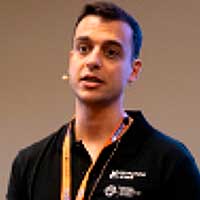 Rubén Barcia Carrillo
Agente del cambio en Knowmad mood
Rubén Barcia Carrillo
Agente del cambio en Knowmad moodVicepresidente Agile Spain Agent of change at Knowmad mood
Vice President Agile Spain Nacido y afincado en Madrid, desde muy joven he tenido inquietud por la tecnología y los ordenadores, por ello decidí estudiar Ingeniería de Computadores.
Después de 8 años trabajando en el mundo de la tecnología y estar en varios puestos y empresas, he ido evolucionando y descubriendo mi pasión por el mundo Agile. Soy informático de profesión y agilista de vocación, y me gusta estar en continuo aprendizaje y evolución personal y profesional. Disfruto trabajando con equipos, formando y acompañando a las personas y organizaciones en su evolución y cambio.
Agile está alineado con mi forma de vida por sus valores y principios (compromiso, transparencia, colaboración, adaptación…). Transmito, enseño y divulgo este mindset, valores y sus frameworks a aquellas personas con las que trabajo diariamente, tratando de inspirarles y ayudarles a transformar su manera de trabajar.
Estamos en un momento de gran complejidad, donde las organizaciones y personas deben cambiar y adaptar sus marcos de trabajo haciéndolos más ágiles y flexibles, para permitir dar respuestas a las necesidades del entorno complejo actual. En mi opinión, la transformación humana y digital es el factor diferenciador y clave para dar respuesta exitosa a estas demandas.
Actualmente mi trabajo se centra en el acompañamiento de organizaciones y equipos como consultor ágil. Además, soy miembro del equipo de Trainers de European Scrum, lo que me permite formar y ayudar a más profesionales en su camino hacia a la agilidad. También colaboro como vicepresidente en Agile Spain, lo que me permite ayudar a impulsar la agilidad en la comunidad hispanohablante.
Mi propósito es contribuir en la transformación de la sociedad y las personas hacia una nueva forma de trabajar (cultura, valores, prácticas).
"La única forma de hacer un gran trabajo es amar lo que haces".
More Academic Information
Official Degree:Master’s Degree in Continuing Education in Agile Frameworks: Culture, Scaling, Deliverables and Transformations
Prospective students aiming to pursue the title of "Master's in Agile for Building Products and Empowering Teams" should possess a blend of collaborative spirit, goal-oriented mindset, and authenticity. Flexibility, active listening skills, and readiness to tackle complex challenges are essential attributes.
Individuals who have completed their education outside the European Higher Education Area can apply without the need for degree homologation. The University will assess their qualifications to ensure they meet the equivalent standards of the required official Spanish university degrees. These qualifications must be recognized in the country of issuance for access to postgraduate education. Admission through this avenue does not imply automatic approval or recognition of the previous degree for purposes other than pursuing Master's degrees.
60 ECTS credits.
Minimum 12 ECTS and maximum 60 ECTS per registration and academic period.
Center responsible:Higher Polytechnic School
Branch of knowledge: Information Technology Area
Available places: 30
Type of Education: Classroom attendance
Languages: Spanish
Academic year in which it was implemented: 2024-2025
Duration: 1,5 years
University Services: [+info]
Competences
Basic CompetencesWe can encompass the competences to be developed in this Master's Degree in four large groups:
- Personal development
- Development of organizations and teams
- Definition, construction and delivery of products
- Sustainability of Change
- Scaling within an organization
We establish the following general competences that students will acquire during the master's degree.
- GC1 – Understand the Agile Manifesto and develop behaviors aligned with its values.
- GC2 – Understand the Agile Manifesto and develop behaviors aligned with its principles.
- GC3 – Promote the Agile culture within teams.
- GC4 – Advocate for the Agile culture within organizations to achieve cultural change.
- GC5 – Understand the applicability of Agile culture in teams not focused on product development through computer technology, and be able to implement it.
- GC6 – Understand the design of user-centered applications.
- GC7 – Facilitate the transition from project-based to product-based work, emphasizing value delivery.
- GC8 – Identify barriers in agile transformations and develop strategies to overcome them.
- GC9 – Ensure sustainable transformation through effective change management.
- GC10 – Foster a culture of continuous improvement through constant experimentation.
- GC11 – Understand the various roles an Agile Coach can assume during a transformation (Expert, Coach, Facilitator, Trainer, Mentor) and determine the appropriate role based on the objective.
- GC12 – Comprehend the role of a Coach within a team and an organization, and effectively perform this role.
- GC13 – Engage with a leadership development framework to learn about different leadership competencies, experience them personally, and analyze them in others.
- GC14 – Measure the impact of agreed experiments and decide whether to persevere, pivot, or discard based on the results.
- GC15 – Scale agile practices to propagate the changes achieved across other teams, areas, and organizational structures.
- GC17 – Present complexity frameworks and their impact on change management within organizations.
- GC18 – Identify the necessary work areas for effective transformations: Leadership and Mindset, Practices and Behavior, Organizational Culture and Relationships, and Organizational Architecture.
- GC19 – Apply concepts from the identified work areas to execute effective transformations.
- GC20 – Establish the ethics of an Agile Coach by compiling the concepts covered during the course, defining the scope of the role, and setting boundaries for what lies beyond its capabilities.
- SC1 – Understand Scrum as a framework focused on building both IT and non-IT products.
- SC2 – Understand Kanban as an agile framework for designing value flows that convert ideas into value for the company.
- SC3 – Understand Lean as the foundation of the Agile philosophy and its application across different markets.
- SC4 – Know the Agile scaling frameworks, their purposes, and their origins.
- SC5 – Know the fundamentals of SAFe as a reference scaled framework.
- SC6 – Understand the SAFe approach to DevOps, applying various practices and techniques to convert ideas into revenue.
- SC7 – Understand Design Thinking as a methodology for designing and defining user-centered products.
- SC8 – Gain experience in user experience and interface design, practicing with Penpot.
- SC9 – Use various tools to visualize team work, with a focus on Jira as the market standard.
- SC10 – Learn to use facilitation tools that support the Agile Coach role.
- SC11 – Experience the use of liberating structures to facilitate interactions that promote Agile values.
- SC12 – Gain first-hand knowledge of applying Agile practices in non-technological environments.
- SC13 – Understand the LCP and the enneagram as frameworks for leadership and self-awareness.
- SC14 – Utilize Trello to manage personal work and appreciate its potential for team use.
- SC15 – Introduce agile technical practices such as Extreme Programming and Agile Testing to enhance value delivery from a technical perspective.
- SC16 – Understand the application of agile concepts in the business world.
- SC17 – Present the Cynefin model and other frameworks to comprehend the impact of complexity on organizations.
- SC18 Understand team culture and how to scale it within an organization.
- SC19 – Explore Systemic Coaching and its impact on organizational transformation.
- SC20 – Introduce the framework and core practices of Management 3.0 as a new organizational paradigm.
- SC21 – Learn the various methods of agile contracting and how to hire for roles executed under agile principles and values.
- SC22 – Determine the impact of OKRs (Objectives and Key Results) on measuring team objectives.
- SC23 – Understand the key metrics in an Agile transformation, from team level to organization, using Power BI to create dashboards.
Methodology
Face-to-face modality
We propose a unique methodology for teaching that incorporates both face-to-face and online (synchronous, live) classes, distinguishing our master's degree from others that are predominantly online. Through Nebrija University's platform, we provide videos and activities, as well as the ability to monitor both live and recorded classes.
The Master's in Continuing Education in "Agile Product Building and Empowering Teams" at Nebrija University is distinctive for its integration of agile practices and essential coaching knowledge to cultivate high-performance teams. This program is designed for dynamic individuals seeking to transform organizations, technical professionals aspiring to advance their careers as team facilitators, and coaches looking to enhance their agility knowledge to add value within teams or organizations.
Recognizing the evolving nature of work across various scales and sectors, our aim is to prepare professionals who are capable of leading both minor changes and major transformations, and who can effectively respond to the current demands of the job market.
The curriculum of this master's program is the culmination of the daily efforts of industry professionals, drawing from their real-world experiences with a diverse range of clients. The focus is on training professionals who can comprehend client needs and provide effective solutions, both practically and through a shift in mindset.
Each subject in the master's program strives to strike a balance between theory and practice, ensuring that participants receive comprehensive, experiential training. This approach equips students not only with knowledge, but also with the ability to apply it.
The subjects incorporate various dynamics, tools, and techniques that master's degree attendees can utilize in their future collaborations with teams and organizations. This provides a complete experience of what it means to apply the agile philosophy for improved results.
The master's degree is designed for inquisitive individuals and centers on the student and their capacity to align with the needs of real businesses to enhance their outcomes. This is achieved by applying the agile philosophy, collaborating in defining objectives, co-creating the optimal path to achieve them, and promoting the use of agile practices where they can have the most significant impact.
The master's program encompasses 5 areas of knowledge, organized into 4 training modules. Each of these four modules contains content from the relevant knowledge areas, organized as follows:
Modules
- 1. Agile Fundamentals
- 2. Personal Development
- 3. Product Development Technique
- 4. Dealing with Complexity
Knowledge Areas
- 1. Agile Practice
- 2. Agile Mentality
- 3. Product and Business
- 4. Tools
- 5. Product Development Technique
- 6. Change Facilitation and Management
Calendar and Schedules
Academic calendar
The master's program is designed to accommodate the academic or professional commitments of our students by offering face-to-face classes on weekends.
The schedule is as follows:
- Fridays: 4 hours from 17:00h to 21:30h (with a break from 19:00h to 19:30h)
- Saturdays: 4 hours from 09:30h a 14:00h (with a break from 11:30h to 12:00h)
- Second Wednesday of the Month: 2 hours of synchronous remote learning from 19:30 a 20:30h (delivery of the FRP) and 20:30h to 21:30h (team coaching).
Please note that there will be no sessions in August, during Holy Week weekends, or on national holidays in the Community of Madrid. The program is set to commence on Friday, October 11, 2024, and conclude on Friday, March 6, 2026 (these dates are subject to changes in accordance with the final work calendars).
Master’s Final Research Project
The FRP sessions will take place weekly on Thursdays from 19:30h to 20:30h. Plenary sessions will be conducted in person, while group sessions can be either in person or remote, as decided by the team.
The purpose of the plenary sessions is to review the deliverables submitted by the teams for that session and to propose the next set of deliverables. These sessions will be facilitated by the coordinating tutor of the FRP.
Group sessions aim to review the work completed, address any doubts, and provide feedback. These sessions will be guided by the group tutor.
Following the group sessions, there will be team coaching sessions lasting one hour, led by a professor who is an expert in group coaching.
Starting in October, an additional day of work will be incorporated into the group sessions (the specific day to be agreed upon). On this day, the expert coaching professor will instruct on how to conduct coaching sessions for third parties, applying the knowledge gained in the master's program.
The initial session will be a plenary session, after which group sessions and plenary sessions will alternate according to the calendar. Please note that the dates are provisional, subject to the finalization of the 2025 and 2026 work calendars.
The defense of the FRP will be conducted as a group, scheduled for a date near the end of the master's program. The exact date will be mutually agreed upon by the students and the teaching staff.
Admission
Admission Requirements
Generally, applicants should submit their admission documents to the Admissions Department at Nebrija University.
Students are required to provide either original documents or certified copies within the timeframe set by the University to complete their enrollment. Please note that any inaccuracies, falsehoods, or omissions in the data, statements, or documents provided by the student during the admission period will result in the inability to continue exercising their rights. The University will proceed with the cancellation of the submitted admission application and the allocated place as soon as it becomes aware of such discrepancies. This is without prejudice to any criminal, civil, or administrative responsibilities that may arise.
For admission to the university's master's degree programs, the following documents must be submitted:
- Completed Admission Application.
- Valid D.N.I or Passport Identification Document.
- Two Passport-Size Photographs.
- If necessary, a letter from the University where the studies that granted access to the Master’s Degree were completed.
- Academic Record with grades that grant access to the master's degree.
- Official Spanish University Diploma.
- Official Diploma from a Foreign Institution in the EHEA.
- Official Diploma from a Non-EHEA Foreign Educational System. In this instance, eligibility will be contingent upon the verification that the completed studies are equivalent in educational level to that of the official Spanish university degrees, and that they qualify the student for admission to official master's programs in the country where the degree was issued. It is important to note that this process does not, under any circumstances, imply the homologation of the previous degree, nor its recognition for any purpose other than admission to master's studies.
- Personalized letter of intent addressed to the Director of the Master's Program, Mr. Félix Bragado Yturriaga. This letter should articulate the reasons for pursuing the Master's studies, as well as the academic and professional aspirations that have guided the applicant to this choice.
- Updated Curriculum Vitae.
Personal Interview:
An interview will be conducted by the faculty or university advisors. The purpose of this interview is to assess the candidate’s suitability and alignment with the degree. The evaluation will focus on determining whether the candidate possesses the necessary motivation, education, knowledge, skills, aptitudes, communication abilities, extracurricular activities, and future interests to be admitted as a student in the postgraduate courses at Nebrija University.
Employability
Career Opportunities
Upon completion of the Master's in Continuing Education in Agile Frameworks: Culture, Scaling, Deliverables, and Transformations, students will be equipped to pursue various professional avenues, including but not limited to:
Collaboration Agreements for professional practices
This Master maintains collaboration agreements for professional practices with some of the best companies and institutions in the sector, among which the following stand out:
Your Master’s Degree in Agile Frameworks: Culture, Scaling, Deliverables and Transformations
Visit all the Activities of the Higher Polytechnic School
Launch of Autonomous Vehicles
In collaboration with FEM Expert, Nebrija University integrates cutting-edge engineering with interdisciplinary fields such as computer science, ethics, psychology, and legal matters related to the essential homologation of autonomous vehicles in this comprehensive project.
Mathematics and Physics in the digital age
The session focused on addressing the challenges and opportunities encountered by mathematicians and physicists in the digital age, emphasizing themes of interdisciplinarity, innovation, and technology. Additionally, it showcased the Applied Mathematics and Applied Physics degree programs, including the double degree option, recently introduced by the Higher Polytechnic School of Nebrija University.

